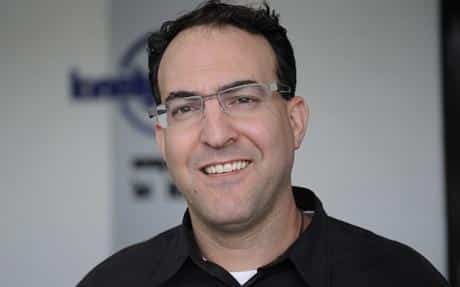
How does the world’s biggest travel guide book publisher, 39-year-old Lonely Planet, pack its bags for the digital era? “Relentlessly,” CEO Matt Goldberg says.
BBC Worldwide bought most of the publisher in 2007 and the remaining 25 percent this year. “When the BBC arrived, less than 10 percent of our revenue was coming from digital sources. In our last financial year, we saw 21 percent,” Goldberg says.
“We’ve got a core print business we’re continuing to invest in – we’re trying to do both. We’re on a relentless march to balance our portfolio. I’m not going to rest until we’re balanced 50/50. I like the rate at which we’re shifting.”
Leaving on a jet plane
This summer, Goldberg, who joined the operation in 2009, restructured the entire Melbourne-based company to save money on foreign currency conversions. The web team was moved to London, mobile is now run out of Oakland and the legacy print team remains Down Under.
There were job losses but: “I got so many positive emails from around the world, saying how impressed they were with our courage,” Goldberg says. “We were very proud of the decision we made. We were in a perfect storm, driven by the global economy and rise in the Australian dollar.
“We now have a much more appropriate cost structure for this business, we achieved some geographic balance. We put the operations where the ecosystems are. By putting our online activity co-located with BBC Worldwide’s ad sales teams, we can get the virtuous circle of product distribution and monetisation going and take advantage of all the capabilities our parent has.”
Spreading wings
Despite the disparate nature of Lonely Planet’s three main media – book, web and mobile – Goldberg says a new cross-media content management system due to be rolled out internally allows travellers’ guides to be ingested and easily turned out for any platform. “We are no longer bound by the process of producing a book. Yes, we can create a book – but also an ebook, an app or create a feed for a partner in quick time.”
Notably, in a company which knows different worldwide destinations inside-out, Goldberg has picked distinct global cities for their respective strengths, with the Wenzani team conceived as a Silicon Valley startup in San Francisco. Could this arms-length development have been attempted at all at home in Melbourne?
“Innovation requires restless experimentation,” Goldberg says. “It’s something that requires a particular cultural mindset.” Separately, Lonely Planet is making global city guides for India’s booming middle class in none of these areas but in New Delhi, where Goldberg says it operates “a startup that must feel the way Lonely Planet did many years ago”.
You can take it with you
Lonely Planet’s portfolio includes lonelyplanet.com, a travel site for its parent at bbc.com/travel and over 220 city guides in mobile app form, possibly its biggest success and its greatest opportunity.
To overcome exorbitant roaming data charges, the apps can function offline. “We have to watch data charges closely,” Goldberg says. “Wifi is changing things in many markets.
“We’re close to 10 million downloads with the iPhone alone.” When an Icelandic volcano in 2010 stranded many travellers in Europe, the publisher made many of its apps free and found a big uptake, with a residual halo of downloads even after prices were reintroduced.
“It was one of the most important learnings we had. That was an automatic act of generosity. We didn’t have one conversation about what it would do for revenue, we didn’t have a marketing plan. What we witnessed was amazing – four million downloads in four days. We were introducing ourselves to new consumers who started looking for what other products we had in the app store. By making those apps free, our daily run rate increased by 50 percent, and never looked back.”
Free apps may naturally work, but Goldberg also declares Lonely Planet “enthusiastic about our ability to achieve paid content revenues in the digital space; there’s a big opportunity to do transactions or ecommerce in a contextual way”.